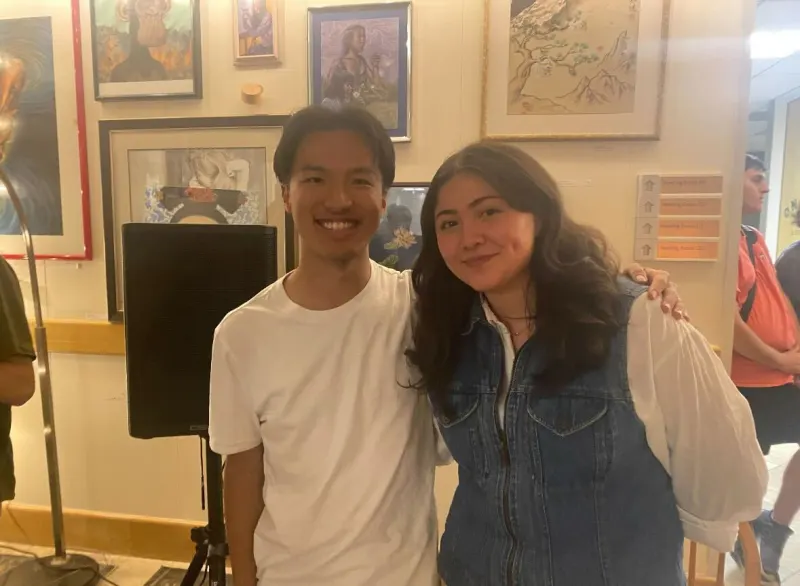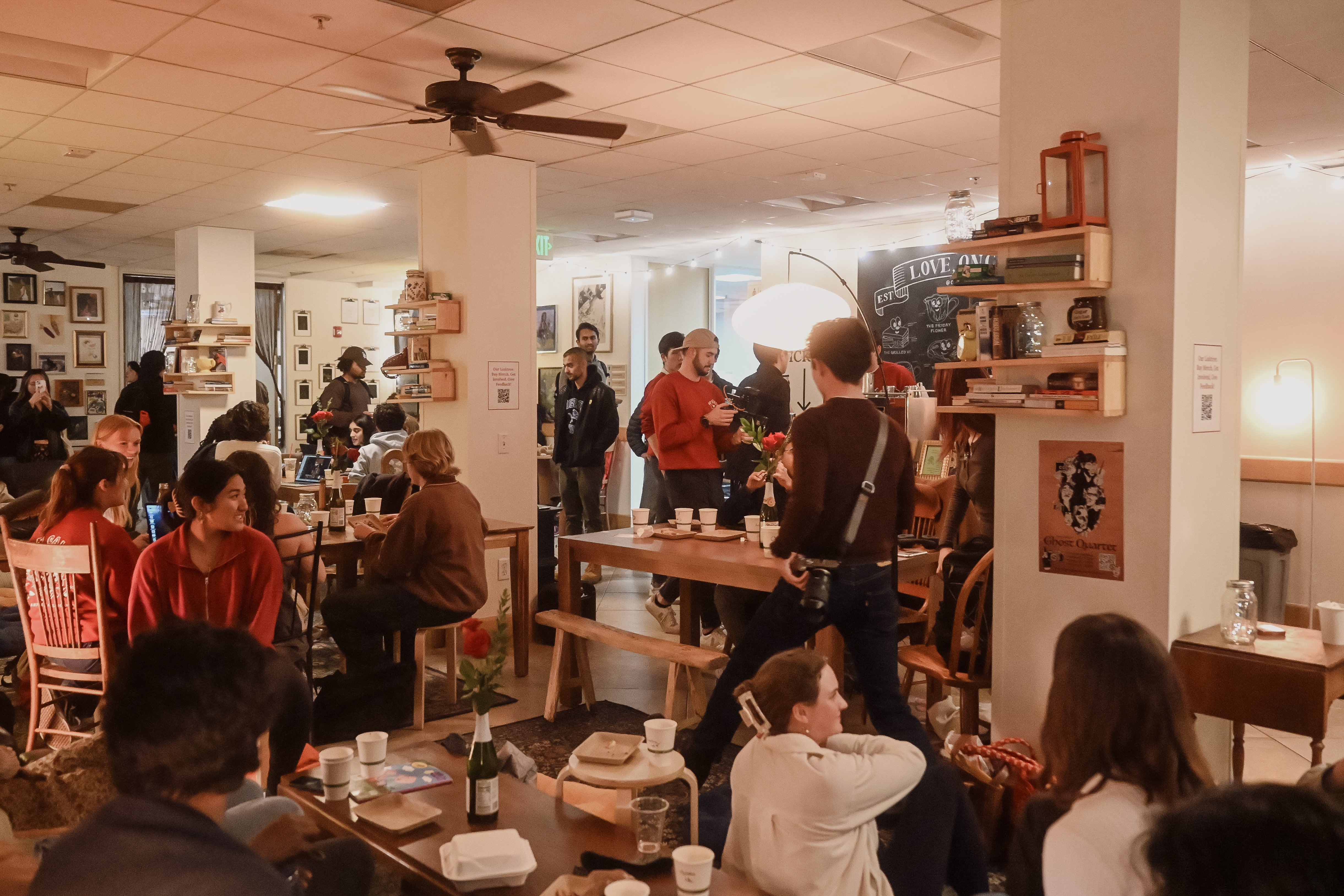Using pen, paper and an electronic Smith-Corona typewriter, students wrote over 50 letters to Humanities and Sciences Dean Debra Satz asking her to reverse the decision to cycle out creative writing Jones Lecturers.
On Thursday, Save Stanford Creative Writing, a student- and alumni-led initiative, organized an open mic night and letter writing stations in partnership with On Call Café, where the group aimed to spread awareness about the creative writing program’s recent restructuring.
Attendees were flowing in and out of On Call as Mallard handed out fact-sheets and talked to those in line about the issues. People were writing letters around the table and against the wall. Towards the end of the night, they wrote over 50 physical letters to Satz, according to Austin Smith, a Jones Lecturer in attendance.
Many demanded a town hall meeting where students can speak directly to the faculty members in the program and ask them questions.
The Daily has reached out to Satz and the University for comment.
Kathaleen Mallard ’25 and Ben Yan ’24 M.S. ’25 began planning the event over the summer to make more people on campus aware of the restructuring, which was announced in an Aug. 21 meeting where Satz, Humanities and Arts senior associate dean Gabriella Safran and creative writing program Director Nicholas Jenkins announced that they were cycling out all 23 Jones Lecturers, which are limited-year contracts given to select former Stegner Fellows.
“We realize there was sort of a disconnect between people online and English majors that knew about what was going on, versus students on campus that aren’t English majors [or] English minors, and we sort of wanted to connect that gap,” Mallard said.
Mallard said she knew On Call’s CEO Peyton Klein ’25 and talked about hosting an event there. Then, Georgia Walker-Keleher ’26, the head of partnerships on the café’s culture and community team, helped Mallard and Yan set up a time, start a tab and use the space.
“On Call doesn’t endorse things, but what we do wholeheartedly support is just students talking about what they care about,” Walker-Keleher said.
Mallard said she felt the need to fight for the lecturers because they had fought and protected her when she was in their classes. They gave her the space to feel supported and vulnerable in her work.
“I think this entire issue, Stanford has put so much more pressure on every single student in the humanities by questioning the validity of their degree,” Mallard said.
When trying to advertise the event, Mallard and Yan hoped to spread the word out using the creative writing mailing list. But Mallard said Danielle Huliganga, a creative writing administrator, did not respond to her email regarding whether the event could be sent out to students on the list. When Smith asked Huliganga about Mallard’s email, his request was forwarded to Jenkins, who replied that the flier wasn’t appropriate to circulate on their mailing lists.
The Daily has reached out to Huliganga and Jenkins for comment.
“I think [this] just goes to show the stance of the English department and how they are not listening to any of their undergraduates,” Mallard said.

Yan also said it was ironic because the Stanford Report article had emphasized they were trying to address student demand.
“They featured no student voices in that article,” Yan said. “It was just really professors talking and essentially talking over us in a kind of way.”
Ting Lin ’24 M.S. ’24 had heard about the event from Fizz. She had taken a creative writing class at Stanford and said it was the most rewarding one she had been a part of. “The [lecturers] have been some of the most welcoming and willing to go out of your way to provide support and mentorship out of the professors I’ve met,” she said.
Lin is not a creative writing minor or English major, but she was passionate about it and the informal mentorship relationships she developed with the lecturers, which was why she came to support and write a letter.
“I really hope that they will reverse the decision, but at the very least, I hope they’re willing to host a town hall to hear student opinions,” Lin said. She said it was sad that the University was unable to dedicate resources to a program that brought many students joy and comfort.
Yinlin Zhao ’28 came to the event after reading about it in the “In the Cards” email — a weekly newsletter sent to the Stanford student body publicizing campus-wide events. Zhao had been considering other creative writing programs, like at Princeton, but chose to attend Stanford because they felt that Stanford offered a balance between the sciences and humanities.
“But now that I’m here and I’m finding out about this, I feel like I misjudged Stanford’s priorities,” Zhao said.
If Stanford followed through with their decision, Zhao said all of the Jones lecturers will be gone by their sophomore year.
For Smith, the students at the event moved him. The turnout had surprised him. The University neglecting the handwritten letters would be “actively ignoring student voices,” Smith said.
Smith was grateful to see Mallard and other students raise awareness and fight for the program.
But, he said, “there’s this anger that I feel that this particular student is having to do all of this work because their own university doesn’t value their lecturers.”
